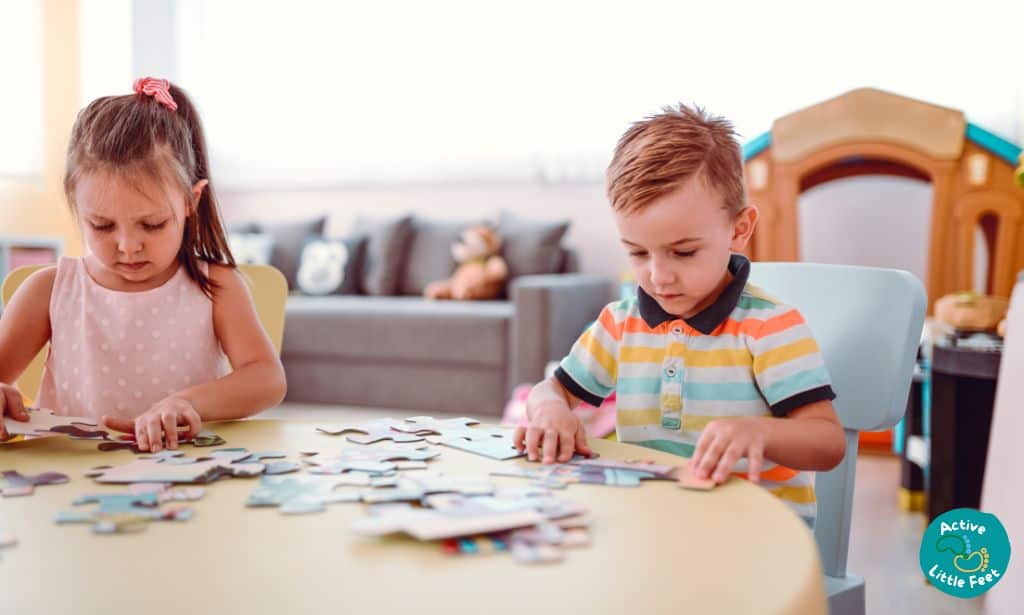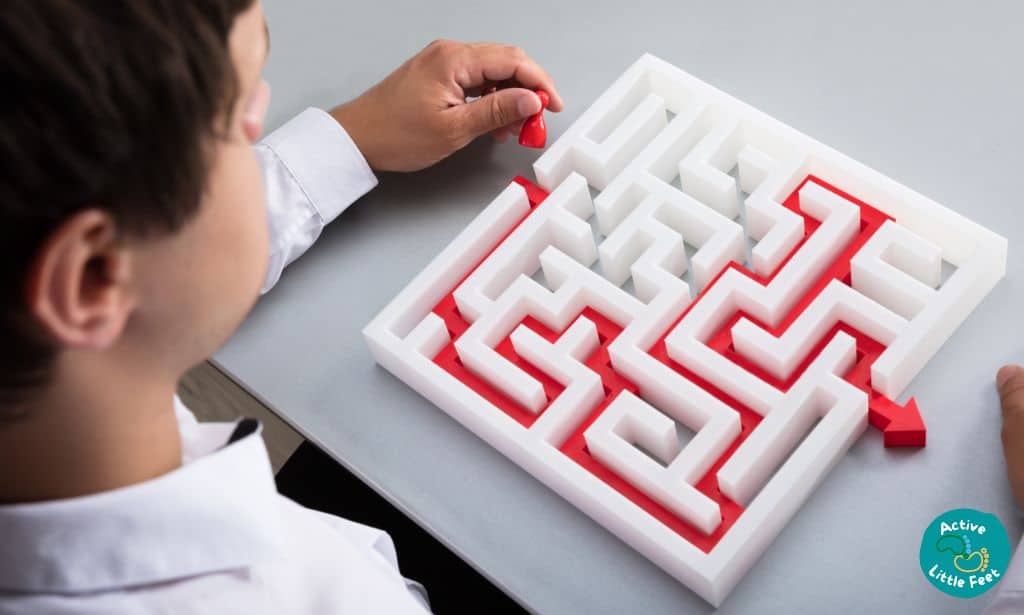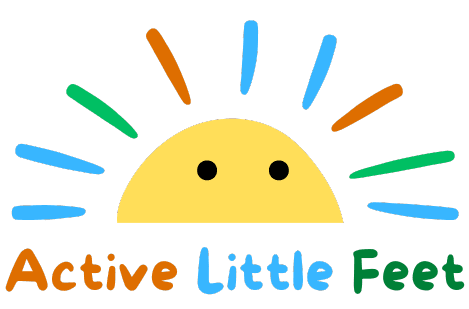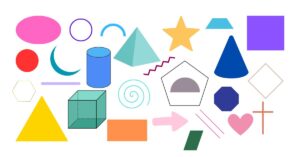Are puzzles good for your kid’s brain? This is a question all of us parents have thought about as we buy the tenth puzzle for our little one.
Puzzles support every area of a child’s development, especially the brain. Completing a puzzle works both sides of the brain and helps strengthen neural connections and build new ones. This helps with cognitive development, memory as well as IQ.
But is it really that simple?
Evidently, yes. Study after study has shown how physical jigsaw puzzles help in a kids’ brain development, and we will look at them just now. The trick is to get an age-appropriate puzzle for each age group and increase the difficulty as they grow and learn more about solving puzzles.
They also need to be consistent at it and practice often. Even without the science behind it, you will notice that it gets easier for kids to solve puzzles with practice. This is proof of brain development.
Nevertheless, let’s look at other benefits of solving puzzles on a child’s brain.

1. Cognitive Development
The field of cognitive function has changed a lot, but the original four stages by Jean Piaget remain- reasoning, intelligence, memory and language. Doing puzzles exercises both sides of the brain equally, and that’s how these different facets develop. Let’s take a look at each facet individually.
Spatial awareness
Ever seen a kid drive a car right through a bridge? You, as an adult, could see that it would not fit under the bridge, but the child thought it would because they lack spatial awareness.
This is the ability to tell how things fit in relation to you and others. As kids try to fit pieces in a puzzle, they learn that objects don’t fit just anywhere. You will teach them things like approximating size, looking at the shape, and turning pieces around. They will also learn concepts like above, next to, below and beside.
This critical skill will come in handy when driving, parking, building blocks, arranging things, and writing.
Problem-Solving
Like spatial awareness, problem-solving is a critical mental skill to have. Puzzles are a good training ground because they start with scattered pieces you must organize and solve a problem with. The kid must make crucial decisions on where each piece goes, turn pieces around, put some aside for later use and even undo and correct some mistakes.
A puzzle is just that- a problem you must solve. This could be by trial and error or by figuring out how shapes, colors, and patterns fit together.

Enhance Intelligence
Yes, doing puzzles does enhance a child’s intelligence quotient or IQ. Your child will be smarter for doing puzzles, especially if they do them a lot.
How, you ask?
Well, because it helps strengthen neuro-connectors and build new ones. The more you exercise parts of the brain, the stronger they become. A combination of all the other brain benefits of solving puzzles also plays a role in IQ.
This, however, doesn’t mean you can puzzle your kid to get the best grades. While it’s a great step, becoming smart involves more than just doing puzzles a lot.
Interestingly, doing puzzles also improves EQ or emotional quotient. The child learns to control their emotions, think logically first, be patient, and see things differently.
Improve Memory
Retention of memory is facilitated by strengthening neural connections and exercising the part of the brain that’s responsible for memory. By doing the puzzle repeatedly, a child can exercise this part by retaining simple information they see every time. This is why doing the puzzle gets easier with time, but the brain’s capacity to retain memories also grows.
Language and Speech Development
The last cognitive skill kids gain by playing puzzles is language development. Generally, puzzles are a great way to teach kids about many things, from mathematics to shapes to numbers and colors. They can also learn about animals, places and things drawn on the puzzle pieces.
As you tackle the puzzle with the child, maintain constant chatter about what you see and are doing. Kids learn vocabulary from listening to adults, and puzzles will help you introduce new words.

2. Enhance Concentration and Attention to Detail
Does your child get distracted easily? Children have an attention span of two or three times their age. It is, therefore, normal for a four-year-old kid to get distracted or lose focus after only 8 minutes of homework.
Thankfully, you can work on this, and one of the best ways is through puzzles. The immersion of tackling a puzzle forces the kid to sit still for an extended period, hence training their brain to focus on one thing for a long.
This immersion also teaches attention to detail. People who do puzzles or play chess are meticulous in their work and rarely miss a thing.
3. Improves Mental Wellbeing
The fun, interactive nature of doing puzzles with someone is amazing. As it turns out, this helps increase dopamine production in the brain and causes the person to feel happy, relaxed and pleased. Dopamine regulates mood, concentration and memory, and finishing a puzzle brings a feeling of accomplishment and pride.
But more than that, doing jigsaw puzzles helps calm down the brain. It’s one of the few things therapists recommend for kids with anxiety, ADHD and stimulus issues. Again, it’s the immersive experience where you focus on the puzzle so much that nothing else can bother you.
Completing a puzzle lowers stress and anxiety, calms the brain down, and equips the child with better coping skills.
Puzzles are Healthy for Your Child’s Brain
The bottom line is, puzzles will do wonders for your child’s brain development. They need 20 minutes daily to strengthen those neurons and exercise the brain. And the best part is- you can start as young as six months old or when they learn to sit up.
Again, start small and improve the challenge with age. We have a fantastic guide on the best puzzles for every age group here. Check it out and start your child on puzzles now.




